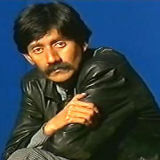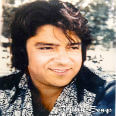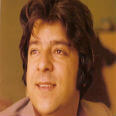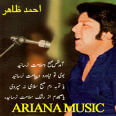
زندگینامه ظاهر هویدا
ظاهر هویدا در نهم حوت ۱٣٢٣هجری شمسی (٢٨ فبروری ۱۹۴۵میالدی) در دایکندی افغانستان زاده دیده به دنیا کشود. درهفت سالگی
شامل صنف اول مکتب سلطان غیاثالدین مزارشریف شد. در همان ایام پدرش را به سبب بیماری که داشت در شهر مزارشریف از دست داد.
مرگ پدر آغاز روزها و سال های دشوار زندگی اش بود. پس از آن، چندی در خانۀ کاکای پدرش گذشتاند اما به زودی تصمیم گرفت با مادر بیوه اش به کابل سفر کند. مادر در کابل جهت اعاشه و اباطۀ فرزندانش به خیاطی پرداخت. وقتی او پنج ساله بود عالقمند به موسیقی شد و پدرش همان وقت که در بلخ کارمند دولت بود، زمینه سازی کرد تا برای آموزش او و برادرش کبیر هویدا معلمی استخدام کند. این اساس آموزش موسیقی او شد. ظاهر هویدا ابتداء به نواختن سازهای مختلف موسیقی آغاز کرد و سپس راه خواننده شدن را در پیش گرفت. کبیر هویدا برادر او، نوازنده پیانو است.
ظاهر هویدا از اولین خواننده هایی بود که در همکاری با عزیز آشنا گروه آماتوران را در سالهای چهل و پنجاه خورشیدی ایجاد کرد.
ماتوران برای نخستین بار موسیقی را در میان خانواده های روشنفکر کابل وارد کرد و آغاز یک فصل جدیدی در تاریخ موسیقی معاصر افغانستان اندکه در ایجاد موسیقی پاپ افغانی نقش به سزایی دارند.
ظاهر هویدا چندی به کتاب رو آورد. می خواند، مینوشت، حاشیه برمیداشت و کم کم شعر می سرود؛ ولی آشتی ناپذیری های روانی اش نگذاشت که این دوران به درازا بکشد. در جایی از "خاطرهها" نوشته است: "در مورد هیچ چیز به اندازه شعر حساس نیستم. از همین رو زمانی به این نتیجه رسیدم که دیگر نباید سرودههای خودم را بخوانم. برای اینکه به شعر بماند، شعر واقعا باید نمای کامل و شفافی باشد از حقیقت برهنه زندگی، یعنی هم نشاندهنده باشد و هم آگاهی ً دهنده، درست مانند خود زندگی.
هویدا با عزیز آشنا در ۱۹٦٣" آرکستر آماتورها" را ساخت. او با آنکه بسیار خوب آغاز کرده بود، نتوانست خوب دنبال کند. گویی تازیانه سرنوشت او را می تازاند. نامبرده این پیشه را نیز رها کرد و به گردآوری دوستانی از گونه دیگرپرداخت. این بار تا توانست با نقش آفرینان، کمیدینها، نویسندگان، سرود پردازان و هنرمندان گستره رسم و خط نزدیکی گرفت و خواست "کانون هنر" را گرم نگهدارد. هویدا در سالهای پنجاه هجری شمسی در رادیو و تلویزیون افغانستان تهیه کننده و مجری برنامه های تفریحی بود و جمعه ها میلیونها شنونده منتظر برنامه اش می بودند که در آن مطالب جالب و سرگرم کننده همراه با نقد اجتماعی پخش می شد. اخیرا او در فیلمی به نام عقاب نقش بازی کرد.
هویدا یازده سال پیهم با آشفتگی ها و توفان های درون خویش در آویخت و با خود جنگید تا پیوند هایش با یار و دیار نگسلد؛ ولی در پایان یک ستیز فرساینده با خویشتن، در سپیده دم کبود و دلگیر ٢٢ دلو ۱٣٦٧ مطابق با یازدهم فبروری ۱۹٨٨که سرمای چله بیداد می کرد، بیراهه برونرفت از بن بست بیکسی و از خودبیگانگی را یافت و پیش از آنکه در راه بی برگشت گام گذارد، با دست های استخوانی اش زنجیر دروازه را با صمیمیت خداحافظی فشرد، با نگاه بسیار تلخ از پنجره های خانه روی برتافت و "آهنگ شهر دگر" کرد. ظاهر هویدا، پس از آن که در سال ۱۹٨۹ از کشور آواره شد، مدت دو سال در هندوستان به سر برد و سپس، در سال ۱۹۹۱ ،به کشور آلمان پناهنده شد و در شهر هامبورگ اقامت گزید. هنگامی که ظاهر هویدا از افغانستان می رفت، کسی پیدا نشد از پیش آبی بیفشاند. و پیداست همانگونه که پس از رفتنش، کسی نگفت "جایش سبز!"، شاید با رسیدنش در سرزمین دیگران هرگز کسی به رویش نخندیده باشد و برایش نگفته باشد: "خوش آمدی!"
در ۱٣۵۱ هجری شمسی او برای تحصیل موسیقی به ایران رفت. در آنجا ترانه های افغانی را در رادیو تلویزیون ایرانخواند. با ترانه "کمر باریک من" که در اصل ترانه محلی بدخشان افغانستان است در ایران به شهرت رسید و سپس بسیاری از خواننده های ایرانی و تاجیک آن را اجرا کردند.
هویدا در ناحیه گوش سرطان داشت ولی در زیر بار داروهای سنگین ضد درد تاب نیاورد و صبح دوشنبه پنجم مارچ ٢۰۱٢ در
امبورگ جرمنی جهان فانی را وداع گفت.
Zahir Howaida's Biography
Mohammad Zahir Howaida was born in 1945 in Dai Zangi, Hazarajat. After the birth of Howaida, his father moved his family to Kabul and thereafter transferred to the city of Mazar-e-Sharif in the Balkh province of northern Afghanistan.
While in Mazar-e-Sharif, Zahir Howida entered the first grade at the Sultan Ghiassuddin Elementary school in 1953. The same year Zahir's father died at the age of 33 leaving behind Zahir, his brother Kabir (who would later become a piano player) and widowed mother. The family moved to Kabul, where Zahir attended 2nd grade at the Sayed Jamaluddin Afghan elementary school.
At the age of 13, Zahir's family moved to Booksellers Avenue of Kabul and subsequently entered Isteqlal High School, earning the highest ranking in his class. Zahir didn't find school curriculum very interesting and often cut class to walk across the school to the public library and borrow books of his interest and read. Zahir was a mandolin player and a backup singer for Akbar Ramish at the Isteqlal High school shows celebrating Afghan Independence Day. Naynawaz encouraged Zahir to sing solo, but he didn't find it suitable during the live show to sing at such a short notice. Hamid Estemadi who had a great voice but did not sing publicly since he was a member of the royal family encouraged Zahir to take his place at the Afghanistan Day show. Zahir was dragged on stage by Hamid and he sang his first song, but was faced with displeasure of the crowd. Moments later Zahir appeared in costume during a play and sang another song which delighted the audience and received an endurance of applause.
Upon graduating high school, Zahir attended Institute of Theatre and Arts of Kabul and joined the Kabul Armature Orchestra led by Fazel Ahmad Zekria Naynawaz along with his brother Kabir Howaida, Rahim Mehryar, Rahim Jahani and more. At this orchestra Zahir showed immense talent as a vocalist and earned a scholarship to learn operatic and eastern classical music at Tchaikovsky Institute in Moscow in 1966. After Moscow he spend time in Tehran in 1972. There, he performed the song "Kamar Bareek-e-Man" which became an instant hit in Iran, where for years many Iranian singers covered the song in concerts and Iranian national television.
Upon his return to Kabul, Zahir began his musical career which brought him overnight success. He composed all his songs with the exception of 4 songs which he often credited to their original composers Ahmad Zahir and Mashoor Jamal. The songs "Rasha dar dast baghban" and "Gar zolf preishanat" are of Ahmad Zahir and "Laila mah man shoda shaida" and "Ay mo telaie" are compositions of Jamal.
Howaida was fond of tea and cigarettes. He also read many books about social and political issues. His favorite author was Maxim Gorky and favorite subject was socialism and social democratic ideas.
Many of Howaida's songs are political in nature and anti-establishment. He often spoke out against the monarchy and the first president of the Afghan republic, Mohammad Daoud Khan. While all artists who wished to appear on National TV were authorized to sing in Persian.
Howaida after the fall of the republic of Afghanistan into the hands of the Marxist communist regime found many opportunities on National Television and Radio Kabul. He recorded most of his songs during this tenure, hosting a variety of show on both mediums.
After the fall of the communist government, Zahir and his family fled to Germany. He toured the world with stops on North America, Europe and Australia for his farewell concert where he broke his vow and sang in Pashto. He followed the concert with the release of his final album "Ay Kash".
On 5 March 2012 as he was suffering from illness, Howaida died at the age of 67 at his home in Hamburg. Well-known singers from the worldwide Afghan diaspora attended his funeral in Hamburg.
He left behind five children, of which two, Arash and Qais, followed the footsteps of their father into the music industry.
Arash Howaida sometimes known by the mononym Arash has released a number of hits including "Laila" and "Alah Alah" (2007), "Dunya" (2008), "Wahh Wahh" (2011). He is also a successful songwriter and music producer.




